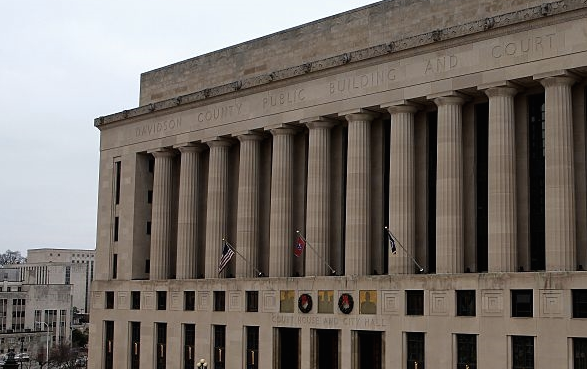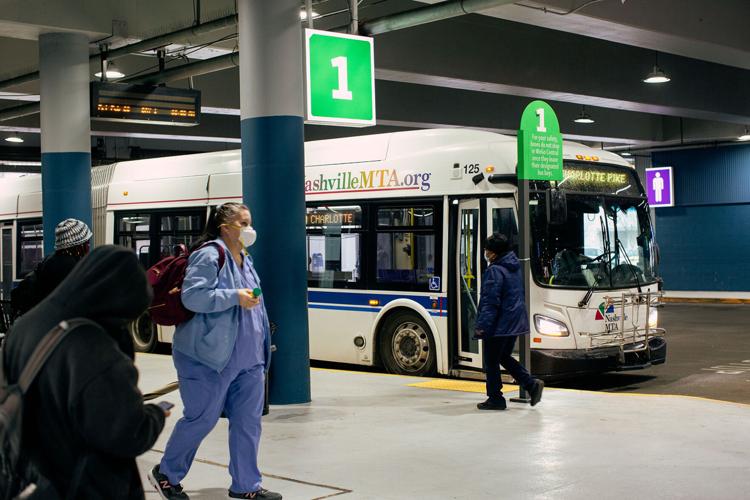
There’s a quip around the Metro Courthouse that Nashville’s government is the right size for the city five years ago. While “New Nashville” has become synonymous with unaffordable housing, displaced families, unrecognizable commercial districts and dysfunctional transit corridors, the growing pains extend beyond the market strain that has accompanied a decade-long infusion of people and wealth.
This year’s budget makes plain Metro’s struggle to provide basic services to residents. The city’s many and varied departments, in requests to the mayor and in a series of department hearings in front of Metro Councilmembers, are now asking the council for the equivalent of 504 new full-time positions. On June 23, the mayor’s office is hosting a job fair at McCabe Park Community Center featuring 15 different Metro departments. Several of these departments, and the mayor’s office itself, have hemorrhaged employees in the past two years.
“When you look at the overall population of firefighters, Memphis has 1,700,” Nashville Fire Department Chief William Swann told the Metro Council on May 18. “Indianapolis has 1,200, Charlotte has a little over 1,000. We have 850.”
There are more than 200 vacant positions just between the fire and police departments, where a few on-duty officers are stretched across too many patrols. One of FY23’s new line items is $1 million to support police recruitment.
Other departments — like emergency communications and codes — have stayed stagnant or ticked up just barely, far outpaced by Nashville’s population growth. In 2021, the Department of Emergency Communications, which answers 911 and nonemergency lines, had a 15 percent turnover rate, with dispatchers sometimes handling twice the recommended amount of calls.
“911 is not an area where we look to save money,” emergency communications director Stephen Martini tells the Scene. “Late spring and into the summer, call volume increases. We’ve got the processes well identified and are adding people, the vast majority of whom are frontline dispatchers.”
While the average Nashvillian may rarely interact with Metro’s deep innards, an understaffed codes department is scrambling to meet the demand for building inspections, structural safety, licensing and permitting in a city that is quickly remaking its physical environment. Other markers are more familiar — a season of stranded trash bins and frame-rattling potholes have contributed to the public perception that the city can’t deliver basic services.
To get a read on the situation, Mayor John Cooper’s office tapped the consulting market a few months ago, hiring Tampa-based firm MGT Consulting. Rather than task Metro staff directly, Cooper has often charged his office with tasking others, making consultants a go-to troubleshoot for the administration in recent months. Earlier this month, the Continuum of Care Homelessness Planning Council sat through a $500,000 report by New Orleans-based organization HousingNOLA that recommended building more supportive housing and creating a stand-alone Office of Homeless Services. (Advocates have long called for such measures, and Councilmember Freddie O’Connell had already filed a bill for a stand-alone office.)
The mayor’s Office of Economic and Community Development, overseen by Courtney Pogue, is preparing to commission a second economic development study while newly hired consultants chip away at a local economic development strategy. Cooper has made a habit of reaching for third-party consults before formulating policy — a long list of advisory committees and task forces, each with associated recommendations and reports, trails his nearly three years in office. As a candidate, he vowed to create rules regulating the use and supervision of outside consultants. Those guidelines have not yet materialized.

“In an effort to be thoughtful and strategic when spending tax dollars, Mayor Cooper commissioned outside experts to give an objective assessment for the most effective way we can add capacity and meet the workload demands of a thriving city,” spokesperson TJ Ducklo tells the Scene. Ducklo, a new hire who joined Cooper’s staff after being dismissed by the Biden administration, has notched nine weeks as Cooper’s chief communications director.
These consultants’ findings fit into a new bit of city jargon introduced by the Cooper administration at April’s State of Metro address: “core city services,” the trash-and-pothole type of deliverables that residents (and voters) expect — at minimum — from local government.
A bulkier Metro, as budgeted for the next fiscal year by the Cooper administration, would see the equivalent of 8,434 total full-time Metro positions, a 13 percent increase from the past two years: 83 additional positions at the fire department and EMS; 68 police; 39 in the Sheriff’s Office; 46 in parks; 35 in codes; 45 at Public Works and transportation; 43 in the Department of Emergency Communications; 18 at the health department; three in finance; and three in the legal department; among others.
This year’s operating budget is also the priciest in recent years. Ducklo tells the Scene that the mayor wants departments generating more income to support increased expenses. “The additional staff across five departments — codes, planning, water services, [transportation] and fire — will be funded through new and/or updated development services fees so the burden is not placed on the everyday taxpayer,” says Ducklo.
Metro Nashville Public Schools has faced its own churn. Teacher turnover spiked during the pandemic to 14 percent, and students’ chronic absenteeism nearly doubled to 29 percent. Amid slashed state funding, the Metro Council is caught in a well-documented struggle to make up the difference to secure a living wage for teachers and support staff.






